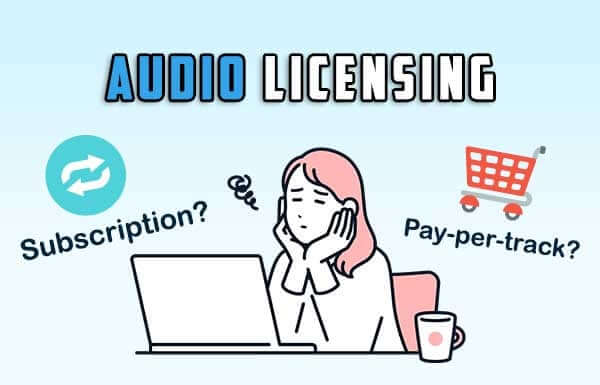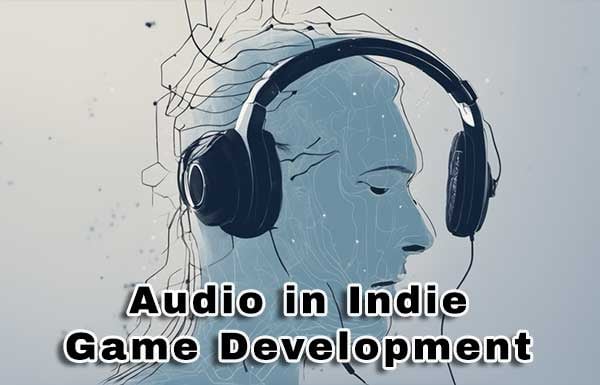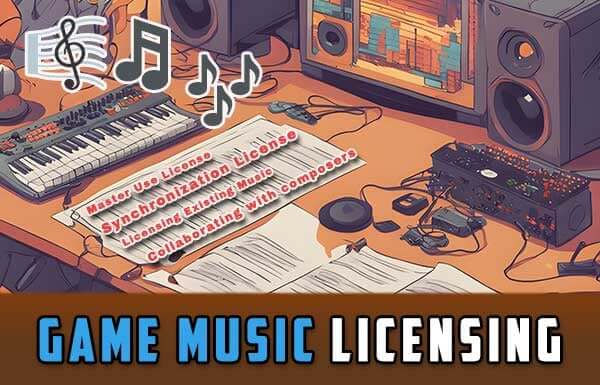All our game music is created to be loopable and royalty-free. With that in mind, let’s look at which game audio licensing, whether a pay-per-track license or a subscription plan, works best for your video game.
Table of Contents
What is a pay-per-track license?
Pay a one-time fee for individual music or SFX tracks, with a perpetual license (no expiry) that allows use in multiple projects, depending on the license tier. Best for small-scale projects, occasional use, or long development cycles.
Pay-per-track License from $1.90
Key Features:
- Flexibility — Pay only for what you need
- Cost-Effective for Small Projects — Ideal for one-off projects or limited budgets
- No Recurring Fees and No Expiry — Pay once, use forever
Recommended for:
- Game Developers — Small indie developers working on a single game or prototype
- Content Creators — YouTubers or streamers creating a few videos or streams
- Game Publishers — Licensing specific tracks for a game soundtrack without ongoing costs
What is a subscription plan?
Pay a monthly or annual fee to access a library of music and SFX, download a set number of tracks per month (99/mo), and use them in projects during the subscription period. Best for high-volume users or for ongoing projects that need a steady stream of new music and SFX.
Subscription Plan from $4.90
Key Features:
- High Volume Access — Great for users who need a lot of content regularly
- Cost-Effective for Frequent Use — Ideal for ongoing projects or high-output creators
- Regular Updates — Access to new tracks added to the library
Recommended for:
- Game Developers — Teams working on multiple games or frequent updates
- Content Creators — YouTubers or streamers producing daily or weekly content
- Game Publishers — Large studios needing a constant flow of new music and SFX for multiple projects
Comparison Table
Game Audio Licensing
| Feature | Pay-Per-Track License | Subscription Plan |
|---|---|---|
| Cost Structure | One-time fee per track | Monthly/annual fee |
| Volume | Limited to purchased tracks | High volume (99 tracks/mo) |
| License Duration | Perpetual (no expiry) | Valid during subscription period |
| Best For | Small projects, one-off use | Ongoing projects, high output |
| Flexibility | Pay only for what you need | Access to a large library |
| Ideal Users | Indie devs, small creators | Studios, frequent creators |
Recommendations for Scenarios
1. Game Developer
Choose Pay-Per-Track If:
- You're a solo or indie developer working on a single game or prototype
- Example: Purchasing 10 tracks for a small indie game
- Ideal for long development cycles (tracks have no expiry)
Choose Subscription Plan If:
- You're part of a team developing multiple games or frequent updates
- Example: Downloading up to 999 tracks/mo for live-service game updates
- Best for short-term or high-output projects (track expires after subscription ends)
2. Game Publisher
Choose Pay-Per-Track If:
- You need to license specific tracks for a game soundtrack
- Example: Buying 20 tracks for a AAA game's cinematic scenes
- Tracks can be used indefinitely, even after the game is released
Choose Subscription Plan If:
- You need a constant flow of new music/SFX for multiple projects
- Example: Subscribing to access to a library for multiple games in development
- Tracks can only be used while subscribed
3. Content Creator
Choose Pay-Per-Track If:
- You create videos of streams occasionally
- Example: Purchasing 5 tracks for a video series
- Tracks can be used in future videos, even if created years later
Choose Subscription Plan If:
- You produce daily or weekly content
- Example: Downloading up to 999 tracks/mo for regular livestreams
- Tracks can only be used in content created while subscribed
How do I decide which game audio licensing is better for me?
In summary, the Pay-Per-Track license is ideal for smaller projects or lengthy development cycles—its no-expiry feature means you can use purchased tracks indefinitely, perfect for solo game developers or content creators working at their own pace.
In contrast, the Subscription Plan is designed for high-volume or ongoing projects that need a constant stream of new music and sound effects, though its licenses expire when your subscription ends, requiring re-licensing for continued use.
The choice of game audio licensing between license tiers and subscription plans depends on the specific requirements and goals of game developers and video content creators, as well as their budgets and audio usage frequency.
Why are the price and license tiers different for music and sound effects?
Music licensing often costs more than sound effects due to factors such as production costs for skilled musicians and studios.
Music copyright protection adds complexity, requiring payments to composers and performers, whereas sound effects are less common. While these reasons generally hold, individual cases may vary, affecting the final licensing costs for music versus sound effects.
That is why, even though our music and sound effects share the same license tier names (Common, Rare, and Legendary), the costs and usage limitations are vastly different!




